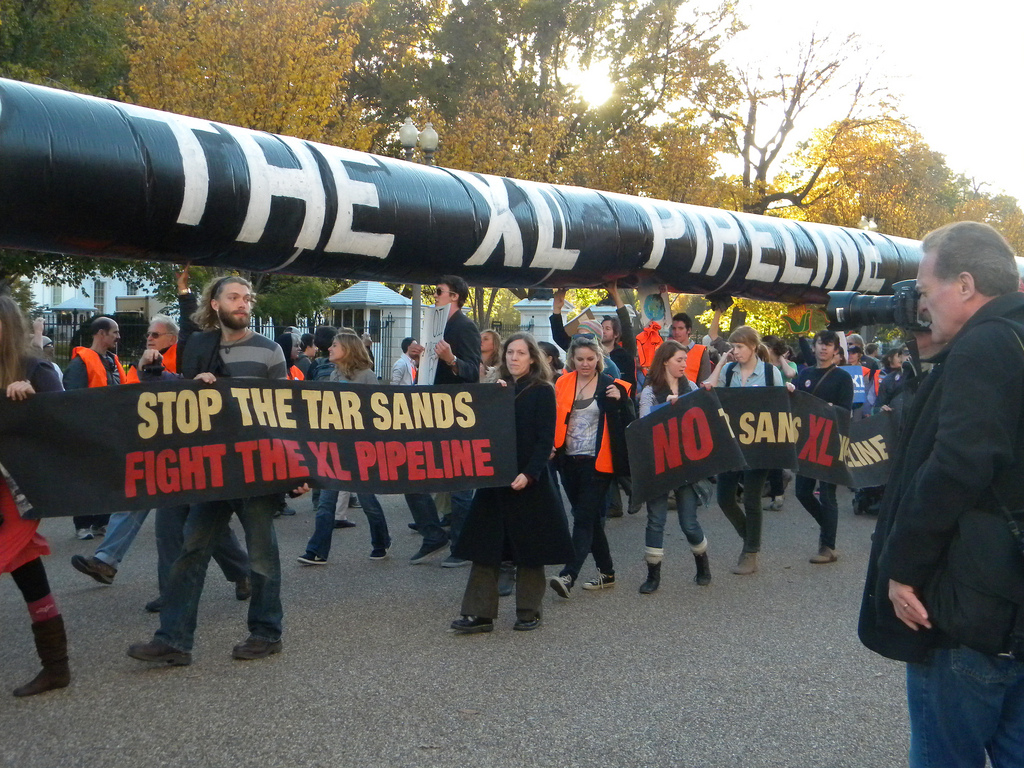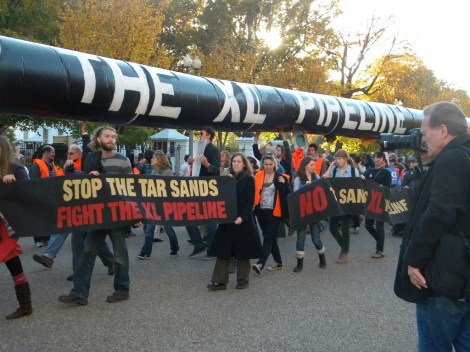Keystone XL pipeline injunction, we hardly knew ye.
Yesterday, the Texas judge who ordered TransCanada to stop work on Keystone XL pipeline construction in East Texas lifted the injunction. The Los Angeles Times reports:
[Texas County Court Judge Jack] Sinz had signed the temporary restraining order, which took effect Tuesday, after finding sufficient cause to stop work on the pipeline for two weeks. But he changed his mind after hearing from TransCanada’s attorneys, who argued that [plaintiff Michael] Bishop understood what he was doing when he signed off on an easement agreement [permitting pipeline construction on his land] with the company three weeks ago.
“TransCanada has been open, honest and transparent with Mr. Bishop at all times. We recognize that not everyone will support the construction of a pipeline or other facilities, but we work hard to reach voluntary agreements and maintain good relationships with landowners,” Shawn Howard, a TransCanada spokesman, said in a statement to the Los Angeles Times. “If we didn’t have a good relationship with more than 60,000 landowners across our energy infrastructure network, we wouldn’t be in business.”
Howard added: “Since Mr. Bishop signed his agreement with TransCanada, nothing about the pipeline or the product it will carry has changed. While professional activists and others have made the same claims Mr. Bishop did today, oil is oil.”
Oil is oil: This was precisely the logic Judge Sinz had initially rejected. And on the heels of the initial injunction, the Los Angeles Times ran an editorial to the effect of: Uh no it’s not.
At the heart of Bishop’s case is the fact that although TransCanada considers bitumen and crude oil to be essentially the same, the IRS disagrees. In fact, it exempts companies that transport bitumen derived from tar sands from an 8-cents-a-barrel tax levied on transporters of crude. TransCanada can’t reasonably claim this tax exemption while pretending it’s moving crude oil. More important, we’d like to see the State Department, which is conducting an environmental study of the northern portion of the Keystone XL route, include some analysis of any heightened risks posed by transporting dilbit.
Bishop was undeterred but perhaps sobered — there were no righteous gonna-make-’em-hurt quotes this time out of the former Marine.
“I’m disappointed, but by the same token a lot of ground was gained today,” Bishop told The Times, adding that the lawsuit drew public attention to the pipeline project.
Bishop is right, though — not all is lost in his case just yet. Next Wednesday, Bishop and TransCanada will have their day in court again before Judge Sinz, who could decide to issue another injunction.
Next Wednesday both sides are scheduled to return to the Nacogdoches courthouse for a hearing before Judge Sinz. TransCanada will argue that Bishop should abide by the easement agreement, Howard said. Bishop will argue once more for an injunction to halt construction.
“If I stop them on my property, other landowners are going to sit up and take notice. I look for landowners to start rebelling,” Bishop said.
Bishop may be looking, but will he find them? Some Texas landowners have stood up against the pipeline, while others have also thrown up their hands in defeat.
But while the fight muddles along in the courts, it’s still raging in the trees. Blockading activists show no sign of abandoning their posts, and will only grow their numbers following a training camp in early January.





